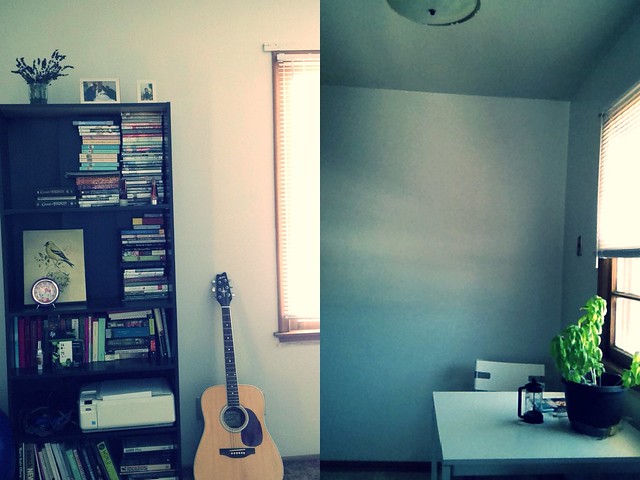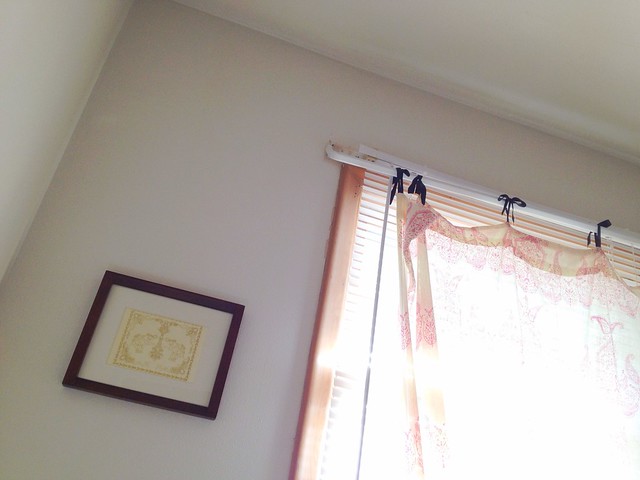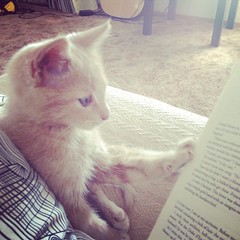I’ve been sort of a droopy little person these past few weeks. Part of it is the time change and the season — such a bummer that it gets so dark so early! — and part of it is moving, the end-of-year pile-up of obligations, work and events, some health/medical stuff and such.
I had been holding up well in all the sturm-und-drang, keeping things organized and humming along….but it’s funny how the smallest thing can derail you, the things you don’t expect and plan for and anticipate. Comcast royally fucked up my moving order and prematurely disconnected the Internet from my old home before I could move into my new address. Yes, a First World Problem, I know, but I work from home via the Internet, so it really messes with my operations. And when I realized the problem was basically a quagmire that would require freaking HOURS to unravel — time I don’t have! — I basically had a full-on meltdown: tears, sobbing, that feeling of wanting to lock myself in a dark room. So much for aspirations of Zen composure! Since then, everything’s kind of set me off, and I have no real sense of equanimity.
Still, you know me, wringing out some kind of insight in a rather shitty situation. Even in all the glory of my meltdown drama, I couldn’t help but observe that part of me is always fighting how I feel, especially when I’m not feeling all puppies-and-rainbows. I grew up being told always to “cheer up” or “think positive” when I was sad; I know my parents meant well, but I internalized this feeling that having “negative” emotions were a BAD THING and a burden to those around me. It’s not just my parents, though; we live in a culture where we absolutely must be fine all the time.
So now, when I feel crappy, I immediately want to rush in and fix it, just because it is so unbearable to feel so crappy. Who wants to feel sad or angry or awkward? No wonder we immediately rush into fixing how we feel, whether it’s shopping, exercise, chocolate, essential oils, your libertine substance of choice or whatever. Sometimes you just need relief, and there are lots of “100 things to do when you hear the sad trombones” types of lists out there that cater to relieving sadness.
Lately though, I find the best thing is to just let myself be sad. Not really wallow or get paralyzed by it, but just acknowledge the full shittiness of the way I feel and let myself sit with it for awhile, letting it work its way through my system. Telling myself: It’s okay to have a grey day, it’s okay to sit in bed for awhile and cry. It’s fine to have a few days of accomplishing nothing, being unproductive, dissatisfied. So that’s what I did — I went about my days and my tasks, but I didn’t force myself to cheer up, be positive, exercise to get my endorphins up, or whatever. I just did soothing things, slept a lot, felt blue and stayed quiet. And then, after awhile, the sad-panda feeling passed and I woke up feeling…right. Like I’d honored myself and my need to be sad. And was left with a nice open space inside of me, filled with a genuine peace and quiet.
That’s life, what the Buddhists call dukkha, or just the discomforts and dissatisfactions that come from everyday existence. Just kind of let myself be quiet instead of throwing myself into the busyness of solving or fixing things. It’s a little scary and uncomfortable, but it passes through you so much faster than immediately going for that psychic Band-aid. And then after a few hours, or a few days, it just kinds of mists away.
That’s one of the gifts of the constant ebb and flow of existence: if life is impermanent, then as much as we’re told that we can’t grasp onto the things in life we want to stay, the things that frustrate us don’t last forever as well. There’s always motion in emotions.
Of course, sometimes you just need cheering up: you need that silly comedy, that retail therapy, that panacea. But every now and then, maybe sometimes it’s fine to just let yourself be absolutely truthful to yourself and just be sad — and see what lessons, thoughts and realizations bubble up from that.




 Sometimes when you’re
Sometimes when you’re 